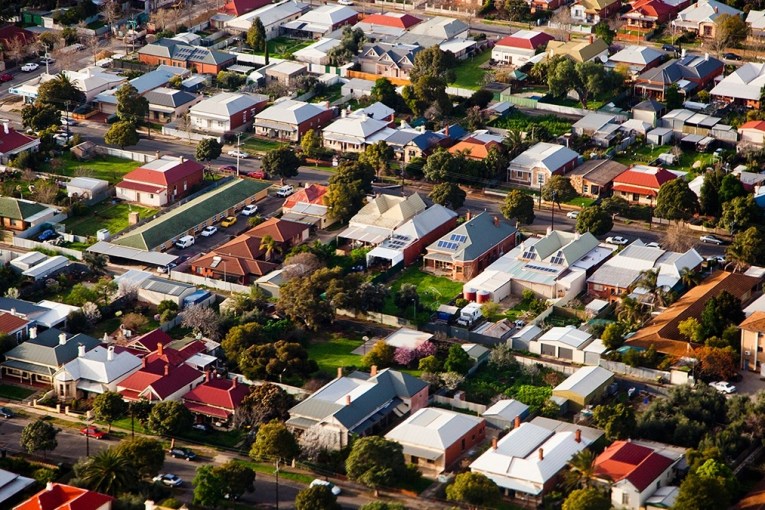Business or pleasure: What to consider before snapping up a holiday home


Photo: Getty
The ‘best of both worlds’ is a phrase beloved by real estate agents from Cairns to Canberra.
It’s trotted out to describe everything from family-friendly homes with large entertaining areas, to coastal getaways within an hour’s drive of the city.
It’s great advertising filler, because it makes people feel as though they can have their cake and eat it too. But it masks the unavoidable fact that every property purchase involves a trade-off.
And in summer, that’s an important point to remember.
Because as we flock en masse to beach houses and wooden cabins across the country, the idea of buying a holiday home becomes much more appealing. Not only because of the cheaper holidays, but because of the potential rental income, too.
The trouble is, what makes a good holiday home doesn’t always make a good investment property, according to Suburbanite director Anna Porter.
Which is why she told The New Daily the first thing prospective buyers should do is work out their motivation for buying one, as “lifestyle assets” and “good investments” are often “mutually exclusive”.

Torquay, on the Great Ocean Road, is a popular destination for short-term accommodation. Photo: One Agency Surf Coast
“They need to consider what’s involved if they want to try and bring those two worlds together,” she said.
“Running an AirBnB property correctly and effectively can be a business in itself. It’s a very high engagement strategy, and you have to be really pro-active and involved in the property and the people leasing it.”
With that in mind, here are some things to consider.
1. It comes with plenty of responsibility
Holiday homes are difficult to manage.
They require owners to deal with multiple tenants over a very short period, which increases the likelihood of bringing in an irresponsible renter.
Tenants expect a higher degree of amenity.
And owners must jump through all the same hoops as investors who rent out their properties on long-term leases.
“For example, they have to make sure the fire safety is up to standard. They have to make sure there’s no bodies of water, like pools or ponds, which could cause an accident,” Ms Porter said.
“And you may not get the information reported back to you when there’s safety issues, until it’s too late, because if people are only staying for a short-term, they’re not going to ring you and say, ‘we want this fixed, or we want the pool safer’.”
2. Management costs are much higher
Bringing in a property manager could make life easier, but the added convenience will come at a cost.
Wakelin Property Advisory director Jarrod McCabe said management companies for short-term rental properties can charge anywhere between 20 and 30 per cent of rent, while Ms Porter said many don’t have the proper licences.

This three-bedroom home in Cape Douglas, SA sold for $290,000 in 2018. Photo: HL Gebhardt & Associates
3. Demand is inconsistent
People like the idea of owning a holiday home that also makes them some money, but many have an unrealistic idea of how much their new asset can actually earn them.
This is because buyers often forget that they will want to use their home during popular holidays, when demand is at its highest, and rent it out during off-peak periods, when demand is at its lowest.
These volatile demand levels mean that short-term rentals typically bring in much less income over the course of a year than long-term rentals, even though they demand much higher rents on a per night basis.
4. Prices rise and fall
Holiday homes are more exposed to economic shocks than regular investment properties, because they’re discretionary purchases.
This means people only buy them when they can really afford them, and seek to offload them when times are tough.
Consequently, many holiday homes offer comparatively weak capital growth.

This three-bedroom property in Point Souttar, SA sold for $525,000 in April. Photo: Professionals Yorketown
5. The tax implications
Some buyers might enter into a holiday home purchase with high hopes of reducing their tax bill.
But while owners are entitled to deduct interest paid on investment loans from their taxable income, they can only claim interest repayments during periods when the property was rented out or genuinely available for rent.
How to pick a winner
Wakelin Property Advisory’s Jarrod McCabe recommends buying a property no more than 90 minutes drive from the nearest CBD, so that people living in the city will use it for weekends away.
“If you push out to two hours or more, you’ll still get demand, but it won’t be as consistent,” he said.
Proximity to the beach, or other local draw-cards, will ensure strong demand from short-term renters. As will good views and outdoor entertaining areas.
And self-contained properties close to other amenities, such as schools and hospitals, will be much easier to sell down the track.








